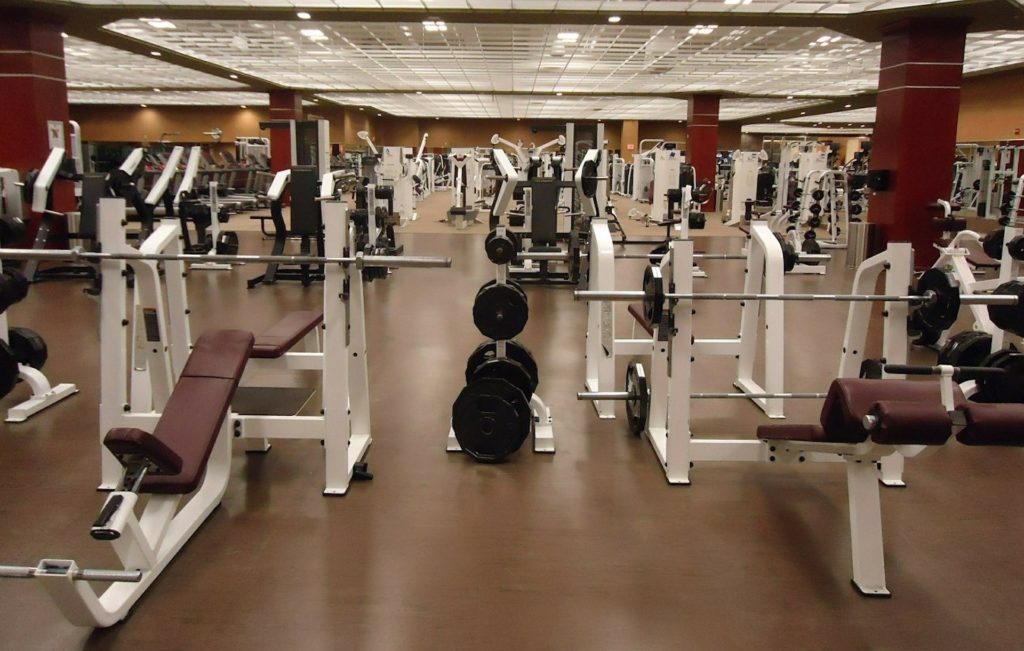
Updated June 4, 2018
As part of our robust Personal Injury practice, we represent countless people who are injured in accidents that occur on a business’ property (i.e. premises liability cases). Sometimes, those incidents occur at a gym or a health club and there may be a claim against the owner/operator of the gym facility. But these cases can sometimes be tricky, because accidents at gyms are not necessarily like accidents at most other commercial properties.
One thing that makes gym accidents different is the fact that customers at the gym are members of the gym. This is unlike a regular store where customers walk in to do business. When a person becomes a member of the gym, there is typically a package of papers that the member must sign when they join. Those documents should be read very carefully as often times the gym will include some kind of waiver that says that the member is waiving their rights to sue the gym in the event that there is an injury.
Another aspect that makes gym accidents different than most other premises liability cases is the fact that the gym is providing facilities for the members to use, like exercise equipment, pools, weights, etc. As such, a member could be injured while using equipment or taking an exercise class, or they could be injured due to a more pedestrian cause, like a broken stair, ice on the sidewalk, etc. In any event, a plaintiff would always have to prove negligence; the gym owner is not automatically liable just because an accident occurred on their property.
Under New Jersey law, the language of a waiver and the mechanism of causing the injury are both very important to the claim. Depending on those two factors, a member injured at a gym may have a good case, or they may have no case at all.
For injuries that have nothing to do with the gym equipment or services themselves, the waiver is generally irrelevant. In New Jersey, owners and operators of commercial properties have a duty to make the building and property reasonably safe for the proper use of customers, and to make reasonable inspections to discovery any hazardous conditions. The Appellate Division recently held in the case of Walters v. YMCA that a property owner cannot exempt themselves from their legal obligations to maintain the property by using a waiver form in a membership package, as a matter of public property. Therefore, slipping on wet floors, falling on broken steps, slipping on ice, and similar accidents can lead to a viable claim regardless of a waiver form.
However, accidents involving the gym equipment, facilities, classes, etc. are going to be subject to a valid waiver, as long as it is within reason. This is because the New Jersey Supreme Court, in Stelluti v. Caspean Enterprises, held that gym activities involve inherently risky activities. Even when used properly, and in fine working order, people can injure themselves using gym machines, spin bikes, etc. Therefore, the gym could limit its liability by having a waiver that precludes an injured member from bringing a lawsuit against the gym for ordinary negligence. For example, the waiver could preclude a claim for injuries suffered on a spin bike that was not property maintained. However, the waiver can never preclude a lawsuit for allegations of gross negligence.
It is therefore very important for an attorney to be able to evaluate the cause of the injury and the language of a waiver agreement. The language of the waiver is a sensitive issue – terms that are hidden or buried in fine print may be disregarded by the court. Further, if the customer was deceived into signing the waiver due to some kind on unconscionable practice, it may also be disregarded. And these are very fact-specific issues, which competent counsel could evalaute with a person who is considering bringing a claim against a gym, spa, or health club.